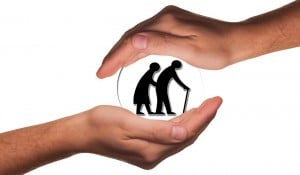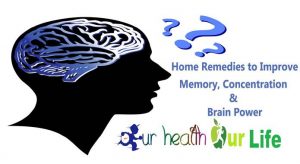Nowadays, we often come across a term depression. What is depression? How does it affect a person? How can it be managed and treated? These are the questions raised in our minds when we hear this word. Depression is a medical condition in which you can observe psychological and physical changes. Early stage symptoms are mild, but gradually, they may increase and reach the severe level of depression that is dangerous for the mental and physical health of the patient. Some common symptoms are mentioned here:
- Always feeling sad and have a depressed mood
- Does not enjoy activities which were enjoyed previously
- Feels guilty and worthless about himself
- Always shows low energy level and fatigue easily
- Cannot concentrate on daily tasks
- Difficulty in decision making
- Weight may be lost or gained due to changes in appetite
- Sleeplessness or way too much sleeping
- Difficulty in communication with people
- Doing purposeless movements with hands and feet
- Thinking about death and suicide
According to the World Health Organization (WHO), more than 300 people across the globe suffer from depression, and they can belong to any age group. Depression is a common mental disorder but it is not very simple for you to start observing the symptoms and declaring him or her as a depressed person. There is a requirement for the proper diagnosis before the treatment is started. Such symptoms may also be observed in a sad person who has gone through some severe recent tragedy. Therefore, we should have basic knowledge about depression and the effective ways to deal with its severity.
Differentiate Depression from Sadness
Differentiating sadness from depression is very important to give the proper treatment of the condition. Losing a job, loss in business, failing in a relationship or death of a loved one, are some conditions that affect a person’s mental health negatively. Such a person loses his will power and feels extremely low. He may talk negatively and think that everything in the world has been finished for him. Due to these symptoms, the person may start saying he is depressed. However, it should be noted that these symptoms are not extreme and do not last long in sadness. It is a natural phenomenon to feel grieved and pain over a significant loss but it is natural to get out of the zone with time.
In depression, these symptoms are severe and last longer. In sadness, there is self-esteem present in the man, but a depressed person loses his self-esteem, which might help him to fight this condition and revive back to a normal life.
Major losses like losing a job, being a victim of physical assault or death of a loved one can completely change a person. Symptoms are strong and last longer than sadness alone. This overlapping of two conditions causes extreme damage to the victim’s personality. However, clear discrimination between these two conditions is essential for support and treatment.
Medications:
As other medical disorders, medications are also given for this psychological disorder. Depression is caused by hormonal fluctuations and altered functions. So, the drugs prescribed in depression act directly on our nervous system. Medications prescribed for depression are called Antidepressants. These drugs modify chemical activities in the brain and help to maintain the balance between the hormones. These drugs are not addictive for the patient. A good thing about these medicines is that these don’t have a side effect on the persons who don’t suffer from depression. Many conventional antidepressant drugs have been introduced and being used by many patients. However, a drug with outstanding performance and antidepressant properties has been introduced; it is called Ketamine. Ketamine is very useful in depression and other psychological disorders. Now you can easily find Ketamine liquid for sale for the best treatment of severe depression.
Ketamine is a tasteless and odorless drug and comes in liquid and powder form. It’s used to block the NMDA-receptor channels. It is a noncompetitive antagonist of the CNS NMDA receptor. It is more effective in liquid form. The modulating effect on NMDA-receptor of Ketamine is a practical and clinically proven in treating severe depression. Ketamine is given in IV form and in a low dosage to reflect its antidepressant actions. Ketamine has different effects at different dosages and can be used in various stages of the disorder. Ketamine in single-dose has rapid response on depressive symptoms, and its effect lasts long for a week. Many case studies proved that after the single infusion of the drug causes remission of the depressive effects for a one-week period. The severe cases of depression, in which the patient has strong suicidal ideation, may lead to a life-threatening situation. A sub-anesthetic dose of Ketamine can suppresses the suicidal ideation and reduces the suicide or self-harm ideas.
As we already discussed, there are many antidepressant drugs available, but when a patient becomes resistant to all the antidepressants, then the role of Ketamine is very remarkable. Ketamine acts efficiently in patients suffering from Treatment Resistant Depression (TRD). One-time intravenous (IV) infusion of Ketamine in Treatment Resistant Depression (TRD) patients have the short-lasting effects of suppressing depressive symptoms and reduces suicidal ideation.
Differentiate Depression from Anxiety Disorder
Some symptoms of depression are the same as that of we observe in the anxiety disorder. These are two different conditions that are very close in their effects, but there are symptoms that make them two different conditions. A person who is always conscious about his actions, feels apprehensive about his future, troubled thoughts, and fails to respond positively to new changes. in decision making periods, he emerges as a stressed out person with zero positivity and low self-esteem. He always feels that he is below all the levels of excellence and fails to take interest in favorite activities. He comes across restlessness and displays unstable moods. These are some of the most rampant signs and symptoms of an anxious person. These are very much close to a depressed person. Always having very low energy levels and easy fatigue, changes in heart and breathing rate are some common symptoms of anxiety disorder and depression. This disorder is very much close to depression, or you can say the first step towards depression. If an anxiety disorder is identified at an early stage and treated appropriately, then a person can be saved from being a depressed person.
How does a person become depressed?
After reading the above details, a question arises in our minds that how a person can be caught by depression? What are the factors which cause depression? There are many risk factors of depression which are mentioned hereunder:
Biochemical Factors:
Depression falls under the psychological illness, so the whole phenomenon is about the hormones and their changes. Hormones are chemicals in our body, which control our metabolic and physical activities. They send messages from a cell to another cell and act. We observe changes in mood and some physical characteristics; all are observed due to the altered hormonal functional. Some hormones in the body may cause a feeling of happiness, and some are released upon the feeling of sadness. Upon release, these hormones set our physical activities like low energy levels, fatigue, crying, and indifference from favorite activities. Our appetite, sleeping pattern, and metabolism are also affected by these changes.
Some diseases result in hormonal changes which eventually lead to psychological conditions. It changes the way a person behaves and leads life. These may be observed in pregnancy, postpartum period, thyroid disorders, epilepsy, and many others.
Genetic Factors:
Depression can be hereditary and run in families from generation to generation. Scientists ruled out that almost 40% of sufferers of depression have a family history of depression. A study recently discovered a gene, which is prevalent in many members of a family who were found to be patients of depression. Another study was put forward that in identical twins, if one twin is going through the depression then the other twin has 70% chances to be caught by the depression.
Gender of the person:
Somehow, the gender of the patient is also a contributing factor for the occurrence of depression. In a study, females at the start of their puberty are more prone to get depressed than males. In young females (14 to 25 years), depression is more than twice as prevalent than in males.
Personality traits of the person:
Personality of a person is a strong identifying tool to discriminate him from others. A person’s personality can influence his physical and psychological health. Basically, three types of personality traits are introduced by scientists. First, Neuroticism or Negative emotionality in which the person will always be anxious, restless, emotionally unstable, and shows very low energy levels. He sees everything from the dark angle and will be a pessimist. Second is Extraversion or Positive emotionality in which a person is energetic, excited for life events, expressive for his emotions, and socially active. The third one is conscientiousness is how much organized and thoughtful person he is.
Environmental Factors:
Environmental factors are more influential for a person to be caught in depression. Continuous failures, violence, abuse, negligence, and poverty can make a person fall into the deep hole of depression.
Treatment of Depression
Depression is curable and responds well to the treatment. Almost 80-90% of the patients completely recover from depression and go back to a positive and pleasant life.
Before opting for the treatment of depression, proper diagnosis is necessary. A communication session should be held between the health professional, patient, and his closed ones. In this session, discussion about the physical and psychological health should be the main talk and the factors which caused him depressed. The purpose of this pre-treatment session is to rule out whether the affected person is a psychological patient or affected by some medical condition which causes these psychological changes in the person. Asking about family history of depression, financial status, relationship status are some key points to identify the actual reason for depression.
After the definite diagnosis of depression, the question comes in the mind of how to treat it? There are different treatment modalities to treat depression, but the choice should be the one which will act at its best and cure depression. The goal of treatment should be to make the person’s life back to normal and allow him to live it at its best.
Psychotherapy:
In some cases of depression, the treatment can be done by the counseling sessions. The sessions allow the patient to talk about his feelings, his failures, and losses, which pushed him to the brink of personality collapse. In counseling sessions, family members or the partner can be accompanied to solve the psychiatric issues. There is a group counseling session in which people with similar conditions gathered, and the therapy is given to all. People with mild symptoms, and who are in the early stages of depression, respond very well to these counseling sessions. They get cured fully, but sometimes, symptoms are severe and cannot be cured alone with simpler counseling. This is when psychotherapists resort to the use of medications. Counseling can be accompanied by medication is some cases.
Effectiveness of Ketamine
Ketamine is a new and advanced drug in the antidepressant. In different studies, it is shown that Ketamine shows no physical adverse effects in high doses. It is going to be a new and rapid option for severely depressed patients in the future.
New studies have discovered the role of Ketamine liquid in intravenous (IV) dose of Ketamine liquid in bolus dose. The goal is to achieve the efficacy in bolus dose.
According to a study, the slow intravenous (IV) Ketamine in patients with severe depression results in significant improvement in depression and anxiety symptoms immediately 1 hour after single-dose. Its effect was sustained with repeated six doses over two weeks, and there was an overall decrease in illness severity after two weeks. This study provides enough evidence for Ketamine’s rapid and sustained effective role in depressive disorders and its tolerability at a sub-anesthetic dose of 0.5 mg/kg body weight by intravenous (IV) bolus dose.
Hence, Ketamine has proved itself as an efficient drug that acts in low dosage and produces lasting effects. In high dosage, it causes suppression in the self-harm and suicidal thoughts that happen in severe depression. It has a sustainable effect on low dose. Ketamine is not only curing for depression but also many other psychological disorders, and in the future, it is going to be the most effective antidepressant.
Ketamine is not only used as an antidepressant only, but it has some other effects like:
- Reverse the Opioid tolerance effect
- Safe for porphyria patients
- Used with Opioid in Cancer patients
- In small dosage, causes anesthetic impact in patients with neuropathic pain
All the antidepressants are only available to you with the certified health professional’s prescription because these drugs exhibit the sedative effect, and the person becomes non-responsive.
Conclusion
The race to riches has failed many. Today’s world is full of challenges from education to career, and many of us don’t have what it takes to match the expectations. Their failures expose them to the dark world of mental illnesses. However, we should be thankful to the medical science that has helped us to recover from the dark holes of depression. Ketamine is one of the many advancements in medicine. It works in low doses and gives long-lasting effects with no side effects.








